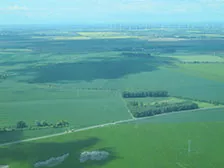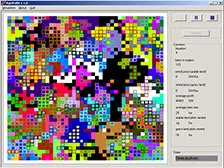WP4 – Land-use conflicts
Land-use conflicts and impacts on agricultural development trajectories in different rural areas
In WP4 we will evaluate how policies that aim at enhancing ecosystem services and public goods affect agricultural development and the economic performance of farms. This will complement the analysis of WP3 about the environmental and societal impacts of such measures. In particular, we will analyse how environmental measures affect farm growth and farmers’ income situation. Thereby, conflicts of different land-uses and positive effects of environmental measures on agriculture will be considered. Furthermore, we will elaborate on whether policy measures should be specified according to differences in local conditions.
In a first step, region-specific measures for the provision of habitats and public goods will be identified. To do this stakeholder workshops, focusing on two European regions, will be organized together with WP3 and coordinated with WP5. Stakeholders from different focus groups representing the farming sector, public administration and government as well as the civil society will be identified together with WP5. During the workshops, the conflicting demands of land for production and for provision of habitats will be discussed. The goal is to identify region specific measures with a potential to solve these conflicts.
In a second step, identified measures will be fed into the AgriPoliS model and their impact on agricultural development and farmers’ incomes will be analysed using the model extensions from WP3. The simulation results will then be presented to the stakeholders in a second round of workshops and the stakeholders will be asked to evaluate the results. The goal of the workshops is to raise the stakeholders’ awareness of the interests of the other stakeholders and to identify possible solutions by initiating discussions. Furthermore, the workshops will be used as a platform for disseminating ideas and results.
Results from the first round of workshops, held in October 2014, are available in an information pack.
Information pack (pdf, 9.8 MB, new tab)
Objectives
- Develop possible (region specific) land-use governance measures together with stakeholders
- Analyse the impact of such policy measures on structural change in agriculture and farmers’ incomes with the agent-based model AgriPoliS
- Evaluate simulation results together with stakeholders in workshops
- Raise awareness of the positive impacts of ecosystem services for agricultural production and stimulate discussions beyond the project
WP4 leader
Amanda Sahrbacher
Leibniz Institute of Agricultural Development in Transition Economies, Germany
a [dot] sahrbacher [at] iamo [dot] de


